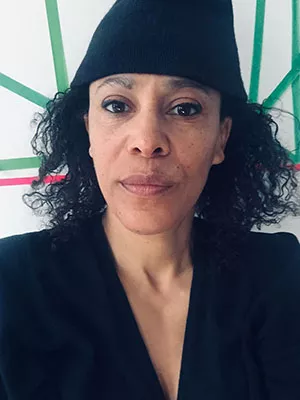
The current crisis and civic engagement
A lot of us are feeling pretty bombarded with the amount of information coming forward every day right now, some of it conflicting or difficult to decipher, and the key is to be discerning with the material we choose to peruse says Professor Beth Coleman.
“I think that we need to always start with authenticated sources – statements issued by the city of Toronto or statements issued by the federal government, that are reliable and that might lead us to do more investigation around particular things,” says Coleman, an associate professor in the Institute of Communication, Culture, Information and Technology and at the Faculty of Information Studies (FIS), where she has been on faculty since September 2019.
For Coleman rallying together towards a better outcome in this health crisis and the civic engagement piece is crucial.
As the Director of the City as Platform Lab, she researches aspects of human narrative and digital data in the engagement of global cities, including aspects of mobile technology and data in smart cities and in public spaces. In her work she partners with a diverse range of collaborators from academia, including Professor Leslie Shade in FIS, and the arts with film producer and incoming OCAD President Ana Serrano, as well as industry with Peter Semmelhack at SignalPattern, which is an online platform for authentication and distribution of urban data.
An example of a past project includes the King Street Pilot in downtown Toronto. This initiative involved working with graduate students to assess Internet of Things (IoT) instruments that gather data, including how fast street cars are going and how many people are moving around in the downtown core, with one of the goals being to gauge public engagement with that built infrastructure.
Coleman says different types of details and contributions come up in relation to civic engagement because citizens have varied experiences, histories and identities, and she sees a lot of this playing out in the current coronavirus climate.
“The COVID-19 health crisis really has brought all of this to a pitch, in terms of what does it mean to have civic engagement and a civic trust of one another, and trust of a federal and municipal authorities in helping to lead us through this,” says Coleman.
She says the daily information circulating about illness and death, the overtaxed healthcare system, and the economic reverberations is overwhelming, but then you see this incredible outpouring of innovation for things like what are the best shop towels to use and patterns for making masks, and the information that is being shared among people over social media, virtually and online has been inspiring.
“That combination is really powerful, and it's that combination that will help us pull down the curve and get the kinds of outcomes that we want from this, and not just panic and fight each other over resource scarcity,” says Coleman.
“This health and economic crisis, which has such profound impacts nationally and internationally, has really woken us up as a city and has also underscored and amplified some of the things that we have been struggling with as a rich city with a really diverse income bracket, like housing, for example. So, as the different communities think about how we are imagining our now and our future and take part in this global conversation and the opportunity at hand, we can think about those points of pain and look at trying to fix these problems in a productive way and with really innovative thinking.”
To hear more about Professor Coleman and her work and what she is doing during self-isolation, listen to the latest episode of VIEW to the U.
Additionally, she is the author of the book Hello Avatar as well as multiple articles addressing issues of smart cities, urban data, augmentation & experience design, and critical race. Her previous academic positions include the Massachusetts Institute of Technology and University of Waterloo.
